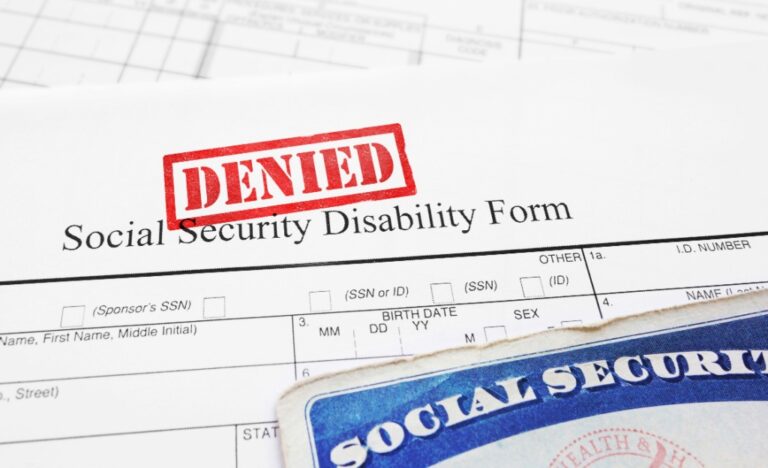Living with severe anxiety or depression can make even simple daily activities seem impossible to complete. If your mental health condition makes it difficult for you to maintain a stable job, you may be eligible for Social Security Disability Insurance (SSDI) or Supplemental Security Income (SSI) benefits. In order to secure approval for these benefits, it is important to have strong medical evidence and prepare thoroughly.
Can Anxiety or Depression Qualify for SSDI or SSI?
The Social Security Administration recognizes severe anxiety and depression as qualifying conditions for disability under its official listings of mental health conditions. Specifically, these conditions may fall under:
- Listing 12.04 – Depressive disorders: This category includes symptoms such as persistent feelings of sadness, loss of energy or motivation, difficulty focusing, changes in eating and sleeping patterns, and thoughts of harming oneself. To be classified in this category, these symptoms must significantly interfere with one’s ability to carry out daily activities, including work.
- Listing 12.06 – Anxiety Disorders: This section covers conditions such as generalized anxiety disorder, panic disorder, post-traumatic stress disorder (PTSD), and obsessive-compulsive disorder (OCD). Symptoms often include excessive worry, panic attacks, intrusive thoughts, or compulsive behaviors that can significantly hinder your ability to perform at work or in social settings.
If you are seeking Social Security Disability Insurance (SSDI), you must have earned enough work credits based on your employment history and be able to demonstrate that your current condition prevents you from engaging in substantial gainful activity (SGA). SGA refers to the ability to earn more than a certain income threshold set by the Social Security Administration (SSA) each year.
On the other hand, Supplemental Security Income (SSI) provides financial assistance to individuals who are disabled, blind, or age 65 and older and have limited income and assets. Unlike SSDI, SSI does not require work history, but it does have strict limits on income and assets.
To be eligible for disability benefits due to anxiety or depression, you will need to provide:
- A formal diagnosis from a qualified mental health professional, such as a psychiatrist, psychologist, or general practitioner. This should include details of the symptoms, their duration, and any related treatments.
- Proof that the symptoms have been present for at least a year or are expected to continue for the next year, or if they result in death. This could include medical records, treatment plans, therapy notes, and information about hospitalizations related to the condition.
How the SSA Evaluates Mental Health Claims in Arkansas
If you are experiencing severe anxiety or depression, you may be eligible for Social Security Disability (SSD) benefits. The Social Security Administration (SSA) recognizes mental health conditions as potentially disabling, especially when they significantly affect your ability to work or perform daily tasks.
To qualify for disability benefits, the SSA considers two main factors:
- Medical Documentation: Evidence from licensed professionals, such as psychiatrists, psychologists, or primary care doctors, confirming your diagnosis and treatment history.
- Functional Limitations: A clear description of how your condition impacts your daily life and impedes your ability to function in a work setting.
What Functional Limitations Does the SSA Consider?
The SSA evaluates how your symptoms impact your daily life, especially in the context of work. Some common difficulties associated with anxiety and depression include:
- Inability to concentrate or stay focused, such as difficulty following instructions, making decisions, or completing tasks on time.
- Social withdrawal or avoidance, including difficulty interacting with colleagues, supervisors, or customers due to anxiety or depression.
- Frequent absences from work due to panic attacks, depression, or emotional instability.
- Difficulty adapting to changes, managing stress, maintaining personal hygiene, or maintaining motivation over time.
To qualify for disability benefits, these difficulties must be persistent and last for at least one year. It’s important to have documentation to support your claim, such as medical records or letters from your doctor.
Why Medical Documentation Is Essential

Simply stating that you are feeling unwell is not sufficient to qualify for Social Security Disability benefits. Instead, the SSA requires detailed and well-documented medical evidence to evaluate the severity and duration of your anxiety or depression accurately. This includes a formal diagnosis from a licensed mental health professional, such as a psychiatrist or psychologist, as well as detailed treatment notes and progress reports from therapy sessions that illustrate the ongoing nature of your condition.
Records of prescribed medications, their effects on you, and any side effects are essential. Additionally, documentation of hospitalizations, emergency room visits, or crisis interventions related to your mental health can help strengthen your claim by showing the seriousness of your symptoms.
Comprehensive medical records like these can help to show that your condition meets the criteria outlined in the Social Security Administration’s (SSA) mental health listings. These listings, such as 12.04 for depressive disorders or 12.06 for anxiety disorders, define what qualifies as a disability under Social Security guidelines.
Need Help with Your SSDI or SSI Claim?
If anxiety or depression has made it difficult to work, you may be eligible for disability benefits. Don’t give up after being denied. L. Jennings Law is here to fight for your rights. Our experienced disability attorneys in Little Rock and Magnolia understand the challenges you face and are dedicated to helping you through the process.
We handle every aspect of your claim, allowing you to focus on your health while we focus on the paperwork. Let us fight for financial support you deserve, while you focus on getting better. Contact L. Jennings Law today to schedule a consultation and take the first step toward securing your future





